M EMOIRS
TENNESSEE WILLIAMS
M EMOIRS
INTRODUCTION BY
JOHN WATERS
 A NEW DIRECTIONS BOOK
A NEW DIRECTIONS BOOK
CONTENTS
INTRODUCTION
Mr. Williams Saved My Life
BY JOHN WATERS
T ENNESSEE W ILLIAMS SAVED MY LIFE . As a twelve-year-old boy in suburban Baltimore, I would look up his name in the card catalogue at the library and it would read see Librarian. I wanted these see Librarian booksand I wanted them nowbut in the late 1950s (and sadly even today), there was no way that a warped adolescent like myself could get his hands on one. But I soon figured out that the see Librarian books were on a special shelf behind the counter. So when the kindly librarian was helping the normal kids with their book reports, I snuck behind the checkout desk and stole the first book I ever wanted to possess on my own. One Arm read the forbidden cover, a short-story collection by Tennessee Williams that I later found out had been only available in an expensive limited edition, sold under the counter in special bookshops before New Directions released the hardback version in 1954. And now it was mine.
Of course, I knew who Tennessee Williams was. He was a bad man because the nuns in Catholic Sunday School had told us wed go to hell if we saw that movie he wrote, Baby Dollthe one with the great ad campaign, of Carroll Baker in the crib sucking her thumb, that made Cardinal Spellman have a nation-wide hissy fit. The same ad I clipped out of The Baltimore Sun countless times and pasted in my secret scrapbook. The movie I planned to show over and over in the fantasy dirty-movie theater in my mind that I was going to open later in life, causing a scandal in my parents neighborhood.
Yes, Tennessee Williams was my childhood friend. I yearned for a bad influence and boy, was Tennessee one in the best sense of the word: joyous, alarming, sexually confusing and dangerously funny. I didnt quite get Desire and the Black Masseur when I read it in One Arm, but I hoped I would one day. The thing I did know after finishing this book was that I didnt have to listen to the lies the teachers told us about societys rules. I didnt have to worry about fitting in with a crowd I didnt want to hang out with in the first place. No, there was another world that Tennessee Williams knew about, a universe filled with special people who didnt want to be a part of this dreary conformist life that I was told I had to join.
Years later, Tennessee Williams saved my life again. The first time I went to a gay bar I was seventeen years old. It was called The Hut and it was in Washington, DC. Some referred to it as The Chicken Hut, and it was filled with early 1960s gay men in fluffy sweaters who cruised each other by calling table-to-table on phones provided by the bar. I may be queer but I aint this, I remember thinking. Still reading everything Tennessee Williams wrote, I knew he would understand my dilemma. Tennessee never seemed gayly-correct even then, and sexual ambiguity and confusion were always made appealing and exciting in his work. My type doesnt know who I am, he stated, according to legend, and even if the sex lives of his characters werent always healthy, they certainly seemed hearty. Tennessee Williams didnt fit into his own minority so I had the confidence not to either. Gay was not enough.
It was a good start, however. I was late coming out and when I did it was with one hell of a bang, Tennessee writes in 1972 in Memoirs, the same year my film Pink Flamingos was world-premiering in Baltimore. While I was just getting my first national notoriety, Tennessee was struggling to finish the final version of The Two Character Play, and horrifying theater purists by appearing on stage in his new play Small Craft Warnings, and then answering questions from the off-Broadway audience afterwards to keep the show running. I never once thought this was unbecoming behavior on my heros part and tried to follow his example by introducing in person, my star Divine, at midnight screenings of our filth epic. I never had any choice but to be a writer, Tennessee remembered at the time, and he remained my patron saint. I followed his career like a hawk.
Why was Memoirs reviewed so badly when it came out in 1975? The love that previously dared not speak its name has now grown hoarse from screaming it, Robert Brustein wrote in The New York Times. Today, few critics would be so blatantly homophobic, but Tennessee did love to bait his enemies. They offered me a $50,000 advance, he said of the book, and I thought Id be dead when it came out. But more sensibly he admitted, Of course, I could devote this whole book to a discussion of the art of drama, but wouldnt that be a bore? Memoirs certainly isnt a bore and caused a sensation when it was released. In fact, the day Tennessee showed up at Doubleday Bookshop in Manhattan and signed over 800 copies became known as The Great Fifth Avenue Bookstore Riot.
Maybe I like bad Tennessee Williams just as much as good. This year a boxed set of DVDs was released containing all of Tennessee Williams best reviewed movies: Streetcar, Cat on a Hot Tin Roof, Sweet Bird of Youth, Night of the Iguana, and The Roman Spring of Mrs. Stone. But I want the bad Tennessee Williams boxed set: Boom (the greatest failed art film ever made) directed by Joseph Losey and starring Elizabeth Taylor as Sissy Goforth, the richest woman in the world, and Richard Burton as The Angel of Death, Last of the Mobile Hotshots (the film version of The Seven Descents of Myrtle), This Property Is Condemned with Natalie Wood, and even Noir et Blanc, the 1986 Claire Devers film version of Desire and the Black Masseur. The bad Tennessee Williams is better than most of the good of his contemporaries.
Was Tennessee nuts when he wrote Memoirs, or just high? Would his original agent, Audrey Woods (from whom he sadly broke in 1971), even have allowed him to publish this book if she had still been in charge of his career? Since 1955 I have written usually under artificial stimulants, he admits before adding, aside from the true stimulant of my deep-rooted need to continue to write. Did Tennessee ever really get over the 1960s, which he calls my stoned age? To know me is not to love me, he admits, remembering the seven year depression he went into after the death by lung cancer of his longtime boyfriend, Frank Merlo. Im about to fall down, Tennessee would announce to whoever was present in those years, and almost nobody, nobody ever caught me.
When Tennessee suddenly is level headed, it can come as a surprise. I have never doubted the existence of God, he writes soberly before later admitting a disbelief in an after-existence. His guarded optimism always seems to save the day. Mornings, I love you so much, he enthuses, celebrating their triumph over night. Self-pity? Never. Ive had a wonderful and terrible life and I wouldnt cry for myself: would you? Hardly.
Is it possible to be a dirty old man in your middle thirties? Tennessee writes in Memoirs, remembering his very active sex lifea kind of sex life that we are much more used to reading about in memoirs today than we were then. Baby, this ones for you, he tells himself whenever Mr. Right Now appears, but he seems to be realistic about safe sex with strangers even before the onslaught of AIDS. Recommending that penetration be avoided with hustlers as they are most probably all infected with clap in the ass, he may be the only Pulitzer Prize winner to write about


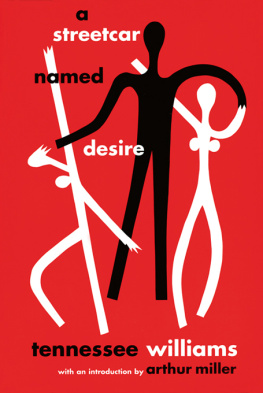
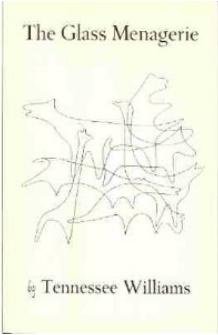



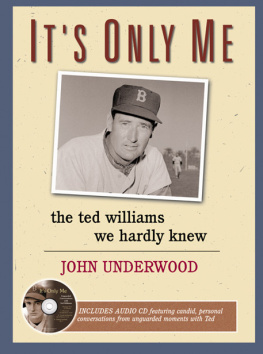
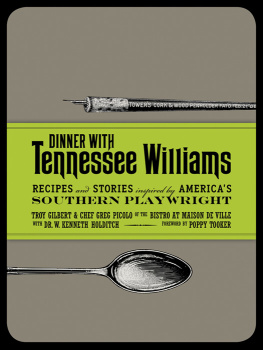
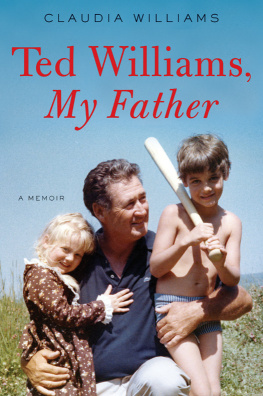
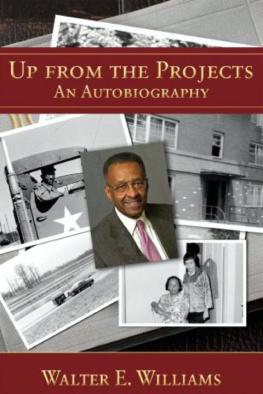
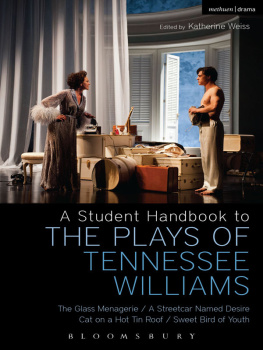

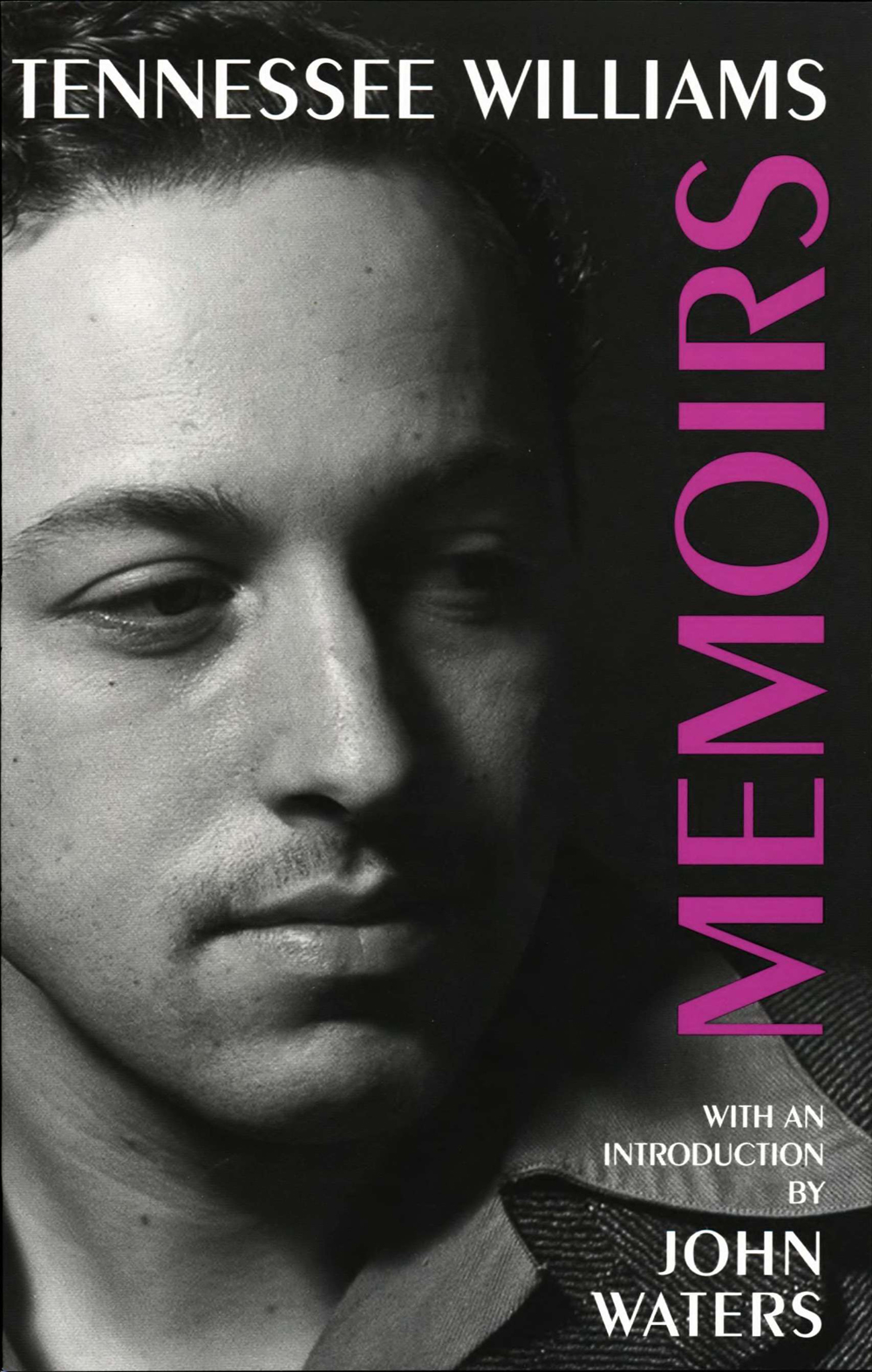
 A NEW DIRECTIONS BOOK
A NEW DIRECTIONS BOOK